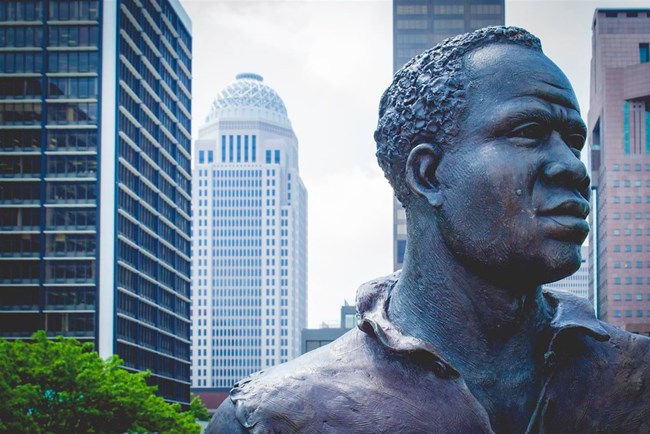Last updated: March 10, 2025
Article
York in 1809

But who could blame York? After all, moving with Clark to St. Louis meant he would be hundreds of miles away from his wife (and possibly some children). York had recently been given permission to visit his wife for four or five weeks in Kentucky, but when he didn’t return for nearly six months, Clark was angry.
Clark became even more upset when he learned that York would rather be sold to another master who lived near his wife’s owner, rather than stay in St. Louis with him. Clark wrote that he found York “of very little Service…insolent and Sulky.” Although he was clear-headed during the majority of the Expedition, Clark was now not seeing the emotional struggle of his life-long companion.
Today, it’s easy for us to analyze the situation – York, even though a slave, was a valued and trusted member of the Corps of Discovery, working side-by-side with the soldiers of the Corps. His contributions were innumerable during the 28-month journey. And we know of no time when York was a problem to Clark during the Expedition.
Clark, based upon advise from Meriwether Lewis, hired York out to another master for a year to presumably to give them both some time a part and ease the tension. York’s new master, a “Mr. Young” was in Louisville, so he would have been closer to his wife. Unfortunately, Young was believed to have been hostile to York. Matters grew worse in about 1811 when York found out that his wife had to move to Natchez, Mississippi with her master.
It’s easy to understand the pain, anguish, and frustration felt by York.
